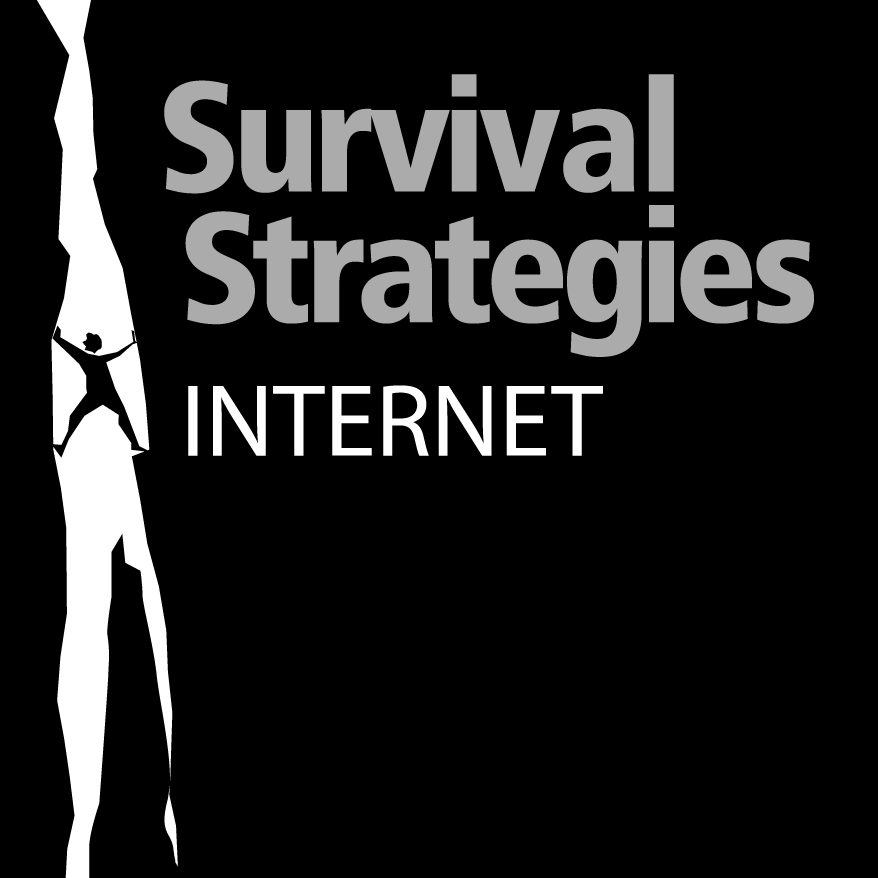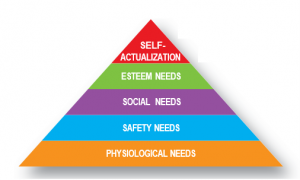Abraham Maslow was a Doctor of Psychology and chairman of that department at Brandeis University from 1951 to 1969. He had a theory that people are motivated by unsatisfied needs. Certain lower needs must be satisfied before higher needs can be. He called it his Hierarchy of Needs. It worked like this: you start at the bottom and move upward. You have to satisfy each level before you can go to the next. If you can’t satisfy the level you’re on, you can’t go to the next one. Or you can try to move up without satisfying the level, but circumstances should drive you back.
For example, Physiological Needs are things needed to sustain life, like air, water, food. If you are busy hunting for food like your ancestors, you really can’t worry too much about your safety (you will have to take risks to gather food). There’s not much need for safety if you can’t breathe either! So, once your physiological needs are met, you then worry about safety.
You want to feel safe before you start worrying about your social needs. And so on, until you get to self- actualization. In other words, if all the needs are met, then self-actualization takes place. What is that?
Self-actualization is about realizing your full potential as a human being. Unlike lower needs, this one is never really fully satisfied. In fact, as you mature, you find new opportunities to “actualize” yourself. For example, wisdom is one of these needs – the need to know. Or exploring the meaning of life, why you are here, and so on. Maslow felt only a small percentage of people reach this level, and probably rightly so: if you’re busy with the other needs, who has time to pursue truth?
But, the Internet changes that. Once you’ve eaten dinner, go to your room and fire up the computer, you enter – because of the Internet – anywhere you’d like to go. That’s part of the power of the Internet: you begin your actualization sometimes before the other needs are met (which is why, by the way, Facebook, a purely Social Needs level thing, is so dominant!).
Thus, the big question really is: Where should the Internet fit on the Maslow hierarchy? The Internet is like a hammer. It helps you accomplish some things. A hammer can help you build a house to feel safe. Hence, you can put the hammer on the “safety” level. Where does Internet belong?
Suddenly, you can see that the Internet is so much more complex than any other tool or piece of equipment that fits nicely into a specific level. The “Internet” seems to fall across many of Maslow’s levels – doesn’t it? (Well, if you can connect to it with your piece of equipment!)

